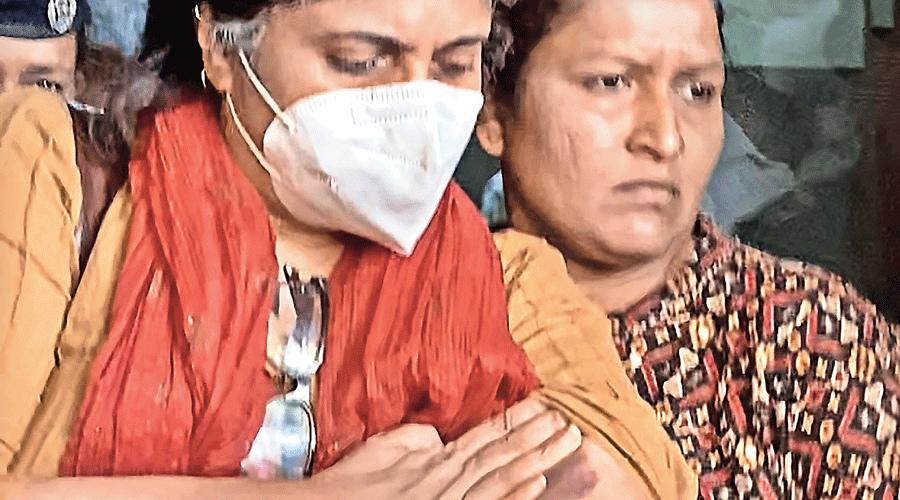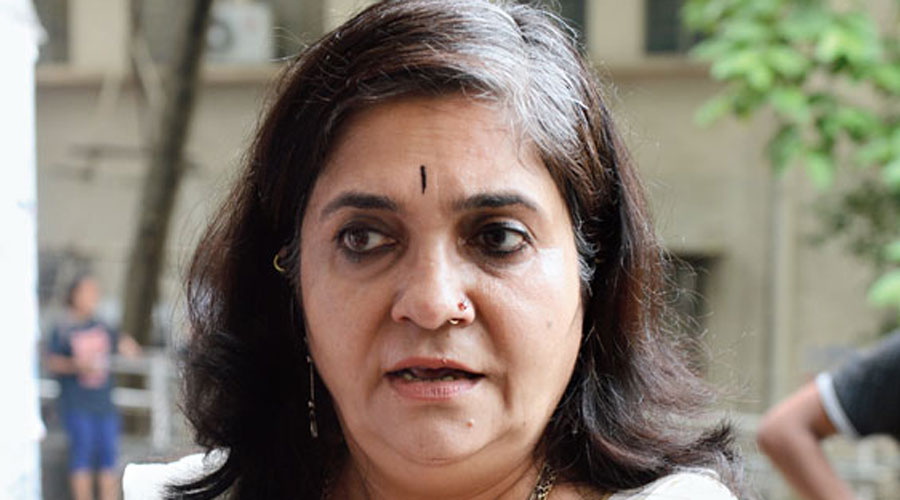The Opposition has raised multiple questions after the Supreme Court delivered a verdict upholding a clean chit given to the then Gujarat chief minister, Narendra Modi, in the Gulberg Society massacre case and said the “pot” was kept “boiling” for “ulterior design”.
Both the CPM and the Congress wondered how the Supreme Court bench’s statements in the Gulberg Society case can square with the “modern-day Neros” reference made by another bench of the apex court 18 years ago in another Gujarat riot massacre case.
Gujarat police have cited a sentence in the latest judgment to arrest human rights defender Teesta Setalvad and former DGP R.B. Sreekumar in a lightning response to the verdict.
Setalvad and Sreekumar, accused of abusing the process of law by fabricating evidence, have been remanded in police custody in Ahmedabad for a week till July 2. The prosecution had sought remand for 14 days.
On Sunday, the CPM politburo issued a statement that makes the following points:
⚫ The action of the Gujarat administration in her (Setalvad’s) arrest has been enabled by “the questionable verdict of the three-member bench of the Supreme Court which has made the complainant into the accused and ordering ‘all those involved in such abuse of process need to be in the dock and proceeded with in accordance with the law’”.
⚫ It “means any SIT established by the Court is to be considered outside the purview of judicial appeals…”, the CPM politburo said.
⚫ If “anyone appeals against it, as did Zakia Jafri (the wife of slain former Congress MP Ehsan Jafri) and Teesta Setalvad in the present case, then they are charged with ‘abuse of process’. A fight for justice for 16 years is described in unusual derogatory terms as keeping the ‘pot boiling for ulterior design’”, the CPM politburo said.
⚫ It “should be noted that the Court-appointed amicus curiae in the SIT case, while agreeing with many recommendations of the SIT, had also recorded that certain sections of the IPC causing hatred among communities should be considered. Earlier in April 2004, it was the Supreme Court itself which had described the then Government leaders as ‘modern-day Neros’. The present verdict does not address any of these issues. It punishes those who, like Teesta, believe in the judicial system. It is a fit case for a curative petition,” the CPM statement said.
On April 12, 2004, the bench of Justices Doraiswamy Raju and Arijit Pasayat had said: “The modern-day Neros were looking elsewhere when Best Bakery and innocent children and helpless women were burning, and were probably deliberating how the perpetrators of the crime can be protected.”
The 2004 bench had quashed the acquittal of all the 21 accused in the Best Bakery massacre case in Gujarat and ordered a retrial in Maharashtra. Eighteen years ago, the apex court bench had also criticised Gujarat High Court for making “irresponsible” statements against Setalvad and other activists and expunged those remarks.
⚫ The Congress had asked on Saturday whether a chief minister or a state government would ever be held accountable even if the state was thrown into a circle of premeditated violence and riots. “Will the chief minister, cabinet and state government be never held accountable, even if the state is thrown into a circle of premeditated violence and riots?” Congress general secretary Randeep Surjewala asked.
⚫ The Congress said the Supreme Court’s verdicts should not be politicised but asked whether only the collector or police officers were responsible for riots in their jurisdictions and their political masters were not. “Is responsibility only of the collector and deputy commissioner of police and not of political executive? What then is the constitutional and moral responsibility of the chief minister and the state government?” Surjewala asked.
⚫ The law in this “New India” is that the “failure to stop or inaction to act against those committing violence is not actionable ground against a state government…. Was the Supreme Court right then in saying – ‘As Rome burnt, Nero fiddled’ or is it right now? Is failure or inaction no longer actionable in law? Let the nation think,” he added.
Also on Saturday, Congress spokesperson Abhishek Singhvi had said “the decisions of the Supreme Court should never be politicised”, adding that “the Supreme Court denies conspiracy or statement by the Prime Minister in the absence of certain police officers. It should simply be respected as an order of the Supreme Court.”
On Sunday, the CPM politburo condemned the arrest of Setalvad, stressing that she had “fought relentlessly for justice for the victims of the 2002 Gujarat violence”.
“Her arrest is an ominous threat to all democratic-minded citizens not to dare to question the role of the State or the government under whose regime communal violence takes place. This is abhorrent to democratic rights of citizens,” the CPM statement said.
CPI general secretary D. Raja too condemned the arrest and tweeted that Setalvad was relentlessly struggling to get justice for the victims of the Gujarat riots. “Her detention by the ATS hours after HM (Union home minister Amit Shah) expressed his displeasure at Teesta’s work is highly questionable. She should be released. Harassment of human rights defenders should stop,” Raja said.
CPIML Liberation general secretary Dipankar Bhattacharya alleged that “justice seekers” were now being put on trial.
The CPIML Red Star condemned the arrest of Setalvad and Sreekumar.
In Ranchi, around 40 activists representing various organisations issued a joint statement demanding the immediate withdrawal of the FIR against Setalvad.
SIT to probe
A special investigation team headed by a Gujarat anti-terrorist squad DIG will probe the case against Setalvad and former IPS officers Sreekumar and Sanjiv Bhatt. After Setalvad was detained in Mumbai and shifted to Gujarat, the Ahmedabad crime branch had arrested her.












